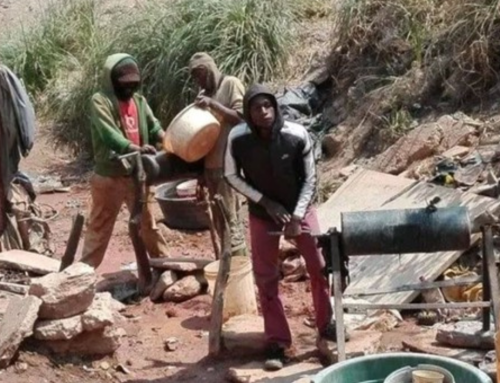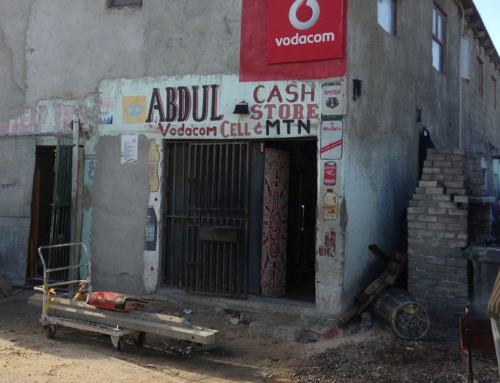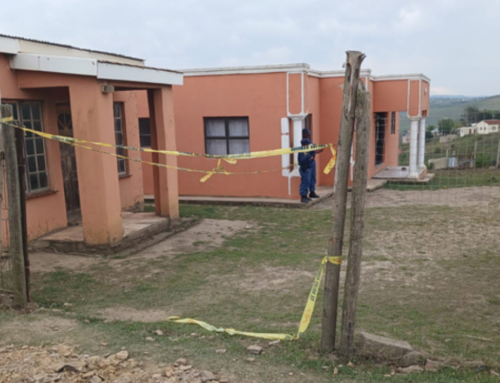 Opinion Article by Thandi Nontenja, UDEMWO Secretary General
Opinion Article by Thandi Nontenja, UDEMWO Secretary General
The United Democratic Movement Women’s Organisation (UDEMWO) remains unceasingly appalled by the slowness of the criminal justice system to prosecute perpetrators. Justice delayed is justice denied.
Criminal cases in South Africa take a very long and unreasonable periods of time to be resolved, resulting in far too many victims unable to find peace and heal from their traumatic experiences.
During her address at the 64th Victim Support Centre in Stellenbosch in April of this year, National Prosecuting Authority (NPA) head Advocate Shamila Batohi voiced her concerns about the significant number of gender-based violence (GBV) cases being withdrawn. Despite a 75 percent conviction rate, many cases fail to reach court due to victims’ fear of reliving their trauma through lengthy court proceedings, which can take years to complete.
The criminal justice system has long been abusing the victims of crimes, as their pain is exacerbated by numerous postponements in court.
One recent example is a fifteen-year-old deaf and mute girl who was allegedly raped by a 21-year-old, and the matter has since been postponed a number of times due to outstanding DNA analysis. The victim is now forced to relive her trauma as her rape case keeps getting postponed and she keeps seeing the perpetrator in their neighbourhood.
The worst part is that there are no sign language interpreters at police stations and courts, therefore the family of the victim must organise their own interpreters from the victim’s school to attend court. The matter has been postponed three times to date.
The South African Police Services (SAPS) is obliged in terms of the Criminal Law Amendment Act to take DNA samples from all persons convicted under Schedule 8 offences, meaning the National Forensic DNA Database can be used as an investigative tool to identify serial rapists, murderers, and multiple offenders.
However, the number of GBV cases are skyrocketing every year, regardless of the amendment bill. Minister Bheki Cele has recently claimed that there are no withdrawn cases due to DNA backlog and that the DNA backlog was cleared. Meanwhile, a 15-year-old victim has evidently been in and out of court, reliving her trauma due to lack of DNA analysis.
UDEMWO calls on SAPS to strengthen the process of taking DNA samples of all persons convicted for the worst crimes under schedule 8, in order for courts to speed up the prosecution of perpetrators whose DNA is on the database, that way court cases will be resolved in a short space of time, allowing victims and survivors to heal and move on with their lives.
We also urge the government to address the capacity issues within the judiciary to tackle the long backlog of civil cases, ensuring expedited processes for gender-based violence (GBV) cases and other criminal cases.
UDEMWO acknowledges that bail is a constitutional right. However, we have been urging the Department of Correctional Services to propose an amendment bill through Parliament. This bill would ensure that individuals accused or previously convicted under schedule 8 crimes have no right to bail before the trial process.
This measure can bolster citizens’ faith in the judiciary. Many individuals withdraw their cases because their abuser has been released from jail on bail. Furthermore, the backlog of cases in our courts means that these perpetrators often remain in communities for extended periods, causing further distress to victims and the often reoffend and/or escalate their crimes.
The UDM strongly believes that the long criminal courts postponements severely extend victims’ pain and suffering, and they need to change. Why should it be that criminals’ rights are more important than those of the victims?
We call for the South African Human Rights Commission to take action and protect the victims, especially on rape crimes.
It is unacceptable for GBV cases to linger in the legal system for over three years before prosecution. These cases should be prioritised and resolved promptly.
SAPS should deploy highly skilled detectives to their special investigation unit, that will result in expeditious court proceedings, by gathering ample and reliable evidence, fast. This streamlined process would enable victims to testify before the court promptly, thus empowering judges to make timely decisions.





























